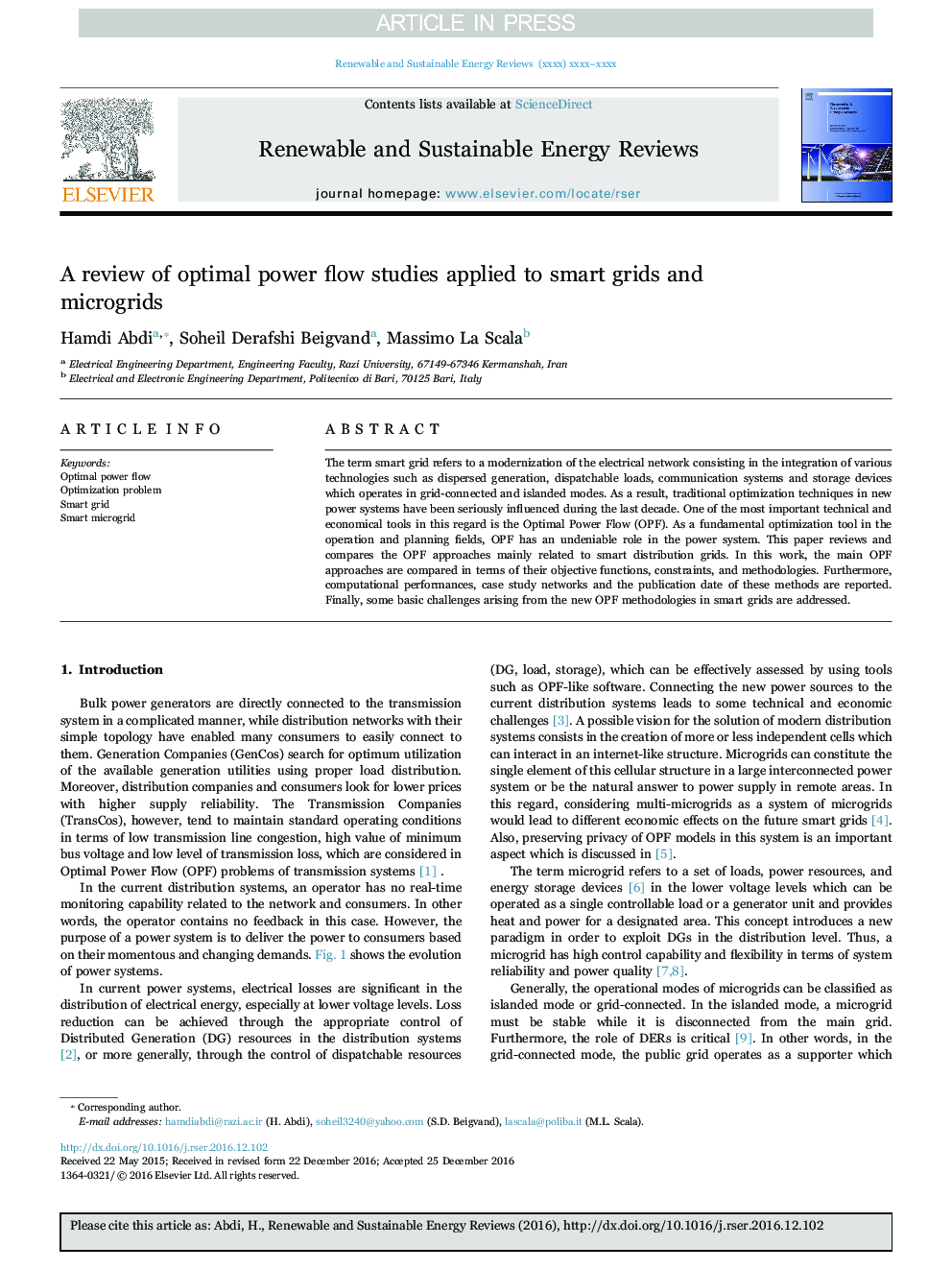| Article ID | Journal | Published Year | Pages | File Type |
|---|---|---|---|---|
| 5483079 | Renewable and Sustainable Energy Reviews | 2017 | 25 Pages |
Abstract
The term smart grid refers to a modernization of the electrical network consisting in the integration of various technologies such as dispersed generation, dispatchable loads, communication systems and storage devices which operates in grid-connected and islanded modes. As a result, traditional optimization techniques in new power systems have been seriously influenced during the last decade. One of the most important technical and economical tools in this regard is the Optimal Power Flow (OPF). As a fundamental optimization tool in the operation and planning fields, OPF has an undeniable role in the power system. This paper reviews and compares the OPF approaches mainly related to smart distribution grids. In this work, the main OPF approaches are compared in terms of their objective functions, constraints, and methodologies. Furthermore, computational performances, case study networks and the publication date of these methods are reported. Finally, some basic challenges arising from the new OPF methodologies in smart grids are addressed.
Related Topics
Physical Sciences and Engineering
Energy
Renewable Energy, Sustainability and the Environment
Authors
Hamdi Abdi, Soheil Derafshi Beigvand, Massimo La Scala,
